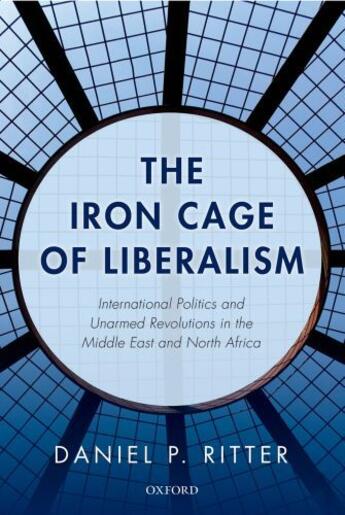Des idées de lecture pour ce début d'année !
Passionné(e) de lecture ? Inscrivez-vous
gratuitement ou connectez-vous pour rejoindre la
communauté et bénéficier de toutes les fonctionnalités du site !

Over the last forty years the world has witnessed the emergence and proliferation of a new political phenomenon - unarmed revolution. On virtually every continent, citizens have ousted their authoritarian leaders by employing nonviolent tactics such as strikes, demonstrations, boycotts, and civil disobedience against them. At the same time however, similar movements elsewhere have been brutally crushed by autocrats determined to cling to power.
In this book, Daniel Ritter seeks to understand unarmed revolutions by posing two interrelated questions: Why do nonviolent revolutionary movements in some countries topples autocratic regimes while similar movements elsewhere falter, and why has the world witnessed the proliferation of unarmed revolutions in the last forty years? Through a comparative historical analysis of the Iranian, Tunisian, and Egyptian revolutions, he argues that close and friendly international relations between democratic states in the West and authoritarian regimes elsewhere constitute a plausible explanation for nonviolent revolutionary success.
In an original conceptualization of revolutionary dynamics, Ritter argues that Western-aligned autocrats eventually find themselves restrained by their strong links to the democratic world through a mechanism he refers to as 'the iron cage of liberalism.' Having committed rhetorically to the West's fundamental political discourse of democracy and human rights, the dictators in Tehran, Tunis, and Cairo found themselves paralyzed when nonviolent crowds challenged them with tactics and demands fully compatible with the political ideals the regimes claimed as their own.
Il n'y a pas encore de discussion sur ce livre
Soyez le premier à en lancer une !

Des idées de lecture pour ce début d'année !

Si certaines sont impressionnantes et effrayantes, d'autres sont drôles et rassurantes !

A gagner : la BD jeunesse adaptée du classique de Mary Shelley !

Caraïbes, 1492. "Ce sont ceux qui ont posé le pied sur ces terres qui ont amené la barbarie, la torture, la cruauté, la destruction des lieux, la mort..."